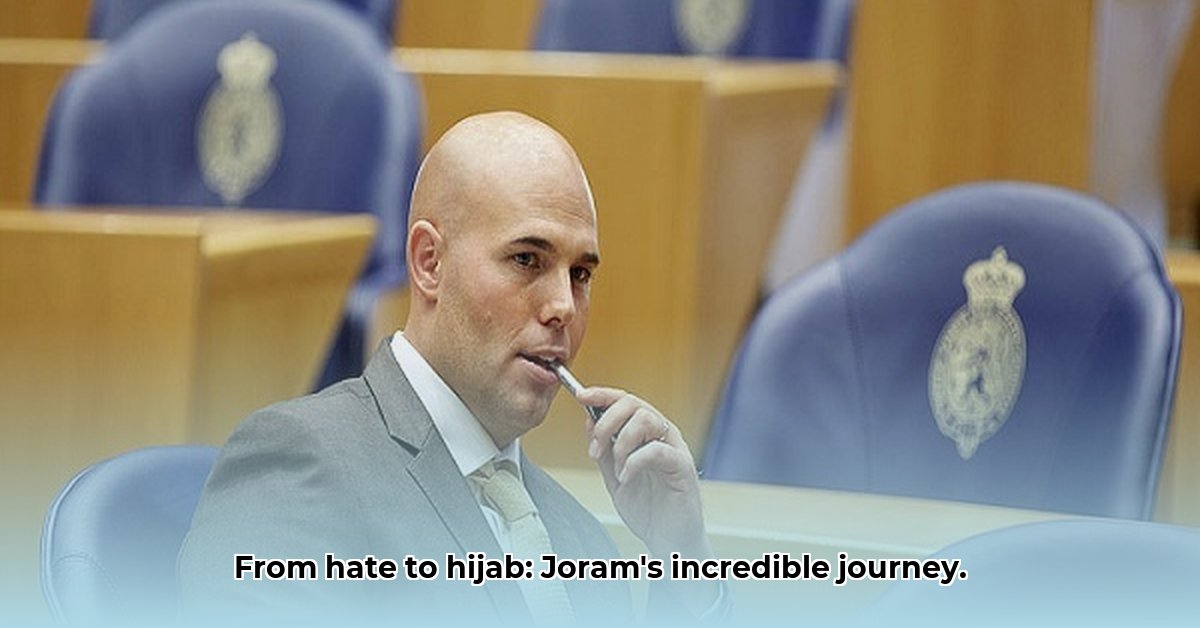
A Transformation's Trajectory: From PVV to Proselyte
Joram van Klaveren's life is a compelling narrative, a stark shift from fiery anti-Islam rhetoric to devout Muslim faith. This isn't simply a political conversion; it's a profound personal journey reflecting a deep intellectual and spiritual transformation. His story, intricately woven into the fabric of Dutch politics, invites us to examine the complexities of belief, the power of intellectual honesty, and the unexpected turns life can take. His trajectory, from a key figure in the Party for Freedom (PVV) to a practicing Muslim, raises questions about the limitations of simplistic narratives and the potential for genuine understanding across ideological divides.
The Anti-Islam Activist: Early Years and Political Ascent
Initially, Van Klaveren was a prominent voice within the PVV, a party known for its hardline stance against Islam. He actively participated in shaping the party's narrative, contributing significantly to a discourse often characterized by strong anti-Islam sentiment. His co-authorship of a book critical of Islam solidified his position as a leading figure in this movement. This wasn't just a political affiliation; it represented a deeply held belief system shaping his public image and political strategy. But how could this staunch opponent of Islam later embrace the faith, becoming a testament to the complex and often unpredictable nature of the human spirit? What were the pivotal moments that led to this monumental shift?
Seeds of Doubt: Cracks in the Foundation
Van Klaveren’s journey wasn't a sudden, dramatic conversion; it was a gradual process marked by intellectual wrestling and personal reflection. While his public persona presented a firm anti-Islam position, behind the scenes, seeds of doubt began to take root. Disagreements with Geert Wilders, the PVV leader, likely contributed to this internal questioning, sparking a re-evaluation of his previously held beliefs. This wasn't merely a political disagreement; it was a deeper, more personal crisis of faith and identity. It begs the question: Did his disagreements with Wilders trigger a deeper reassessment of his own core beliefs? How did these differences ultimately contribute to his intellectual evolution?
The Turning Point: Intellectual Curiosity and Religious Exploration
The catalyst for Van Klaveren's transformation wasn't a single event, but rather a commitment to rigorous intellectual inquiry. Initially intending to further solidify his anti-Islam arguments through research, the process had an unimagined effect. His engagement with the Quran and Islamic theology led to a profound re-evaluation of his preconceived notions. This wasn’t a superficial study; it was a deeply personal exploration, challenging his existing worldview. Did he anticipate this profound shift in the early stages of his self-education? This pivotal question underscores the unpredictable nature of intellectual and spiritual journeys.
From PVV to a New Path: The Aftermath and Public Reaction
Van Klaveren's departure from the PVV and subsequent conversion to Islam sent shockwaves through Dutch politics and the media. His former allies reacted with criticism and disbelief, highlighting the stark contrast between his past and present beliefs. The intense media attention underscores the significance of his conversion, not just as a personal journey, but as a public event with broader implications for the political landscape. How did the public react to Van Klaveren's conversion? How did the media portrayal shape the public perception of his transformation? These questions highlight the broader context of his journey.
More Than Politics: A Personal and Intellectual Odyssey
Van Klaveren's story transcends the political realm, offering a profound case study on personal transformation and intellectual honesty. This narrative challenges simplistic narratives about religious conversions, emphasizing the role of intellectual curiosity, self-reflection, and the ability to admit when previously held beliefs are flawed. His journey invites us to consider the limitations of basing one's views solely on political expediency and to accept the potential for deep-seated changes in perspectives. What lessons can we learn from his story about the nature of belief and the importance of self-examination?
The Unseen Journey: The Van Klaveren Gezin's Experience
While much focus remains on Joram van Klaveren's individual transformation, the impact on his family, the "Joram Van Klaveren Gezin," demands equal consideration. Their lives were undeniably impacted by this dramatic shift in their patriarch's beliefs and public image. The family's adjustments and their experiences navigating this significant change provide a human element to the story, a dimension often overlooked in political narratives. How did his wife and children experience this tumultuous period? How did they adjust to the significant changes in their family dynamic and public perception? Further research into the family's perspectives would enrich the narrative and promote a more holistic understanding of this extraordinary transformation.
Conclusion: A Legacy of Re-evaluation and Understanding
Joram van Klaveren's story is not just a political anecdote; it is a powerful testament to the potential for personal growth, intellectual honesty, and the transformative power of engaging with differing perspectives. His journey challenges preconceptions, prompting a re-evaluation of simplistic narratives surrounding religious and political ideologies. It underscores the need for more nuanced and open-minded dialogue in addressing complex social and religious issues. What lasting impact will Joram van Klaveren's journey have on future discussions about faith and politics? His story will likely continue to resonate and inspire further analysis for years to come.